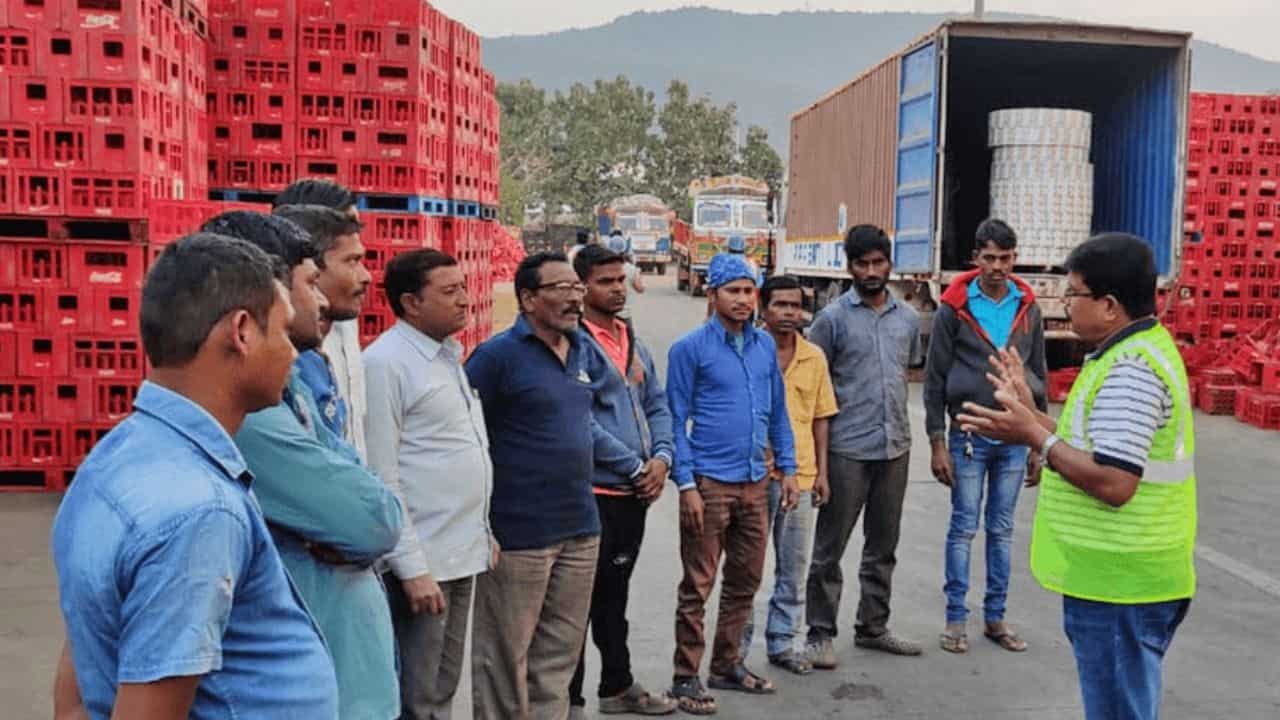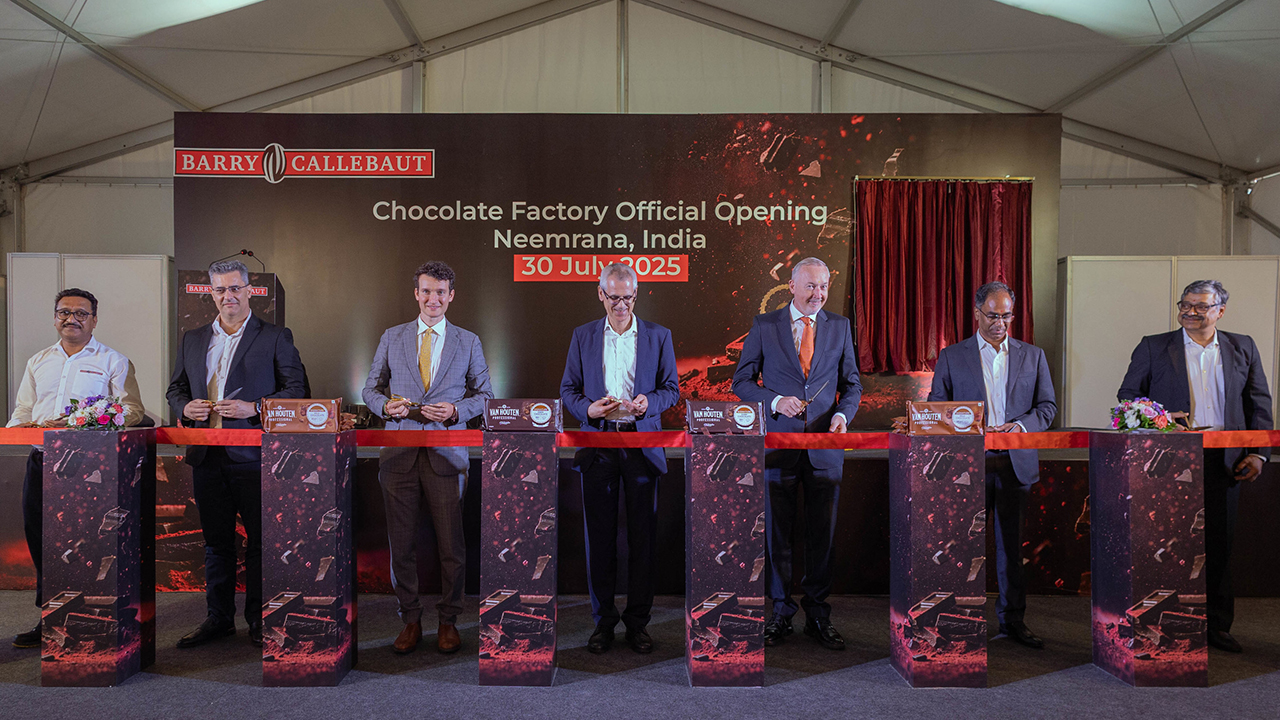Driver Management Centres of HCCB - Making Indian Roads Safer!
#HCCB #Safety #DriverManagementCentersHCCB runs Driver Management Centres (DMCs) in 19 locations across its countrywide network of factories and depots

India holds the dubious record of having one of the highest cases of road accidents and fatalities in the world. Causes are largely known and yet the situation continues to be grim. As a beneficiary of the road infrastructure in the country, we at HCCB (Hindustan Coca-Cola Beverages) decided to play our hand in trying to make Indian roads safer.
“We wanted to be part of the solution of such a grave problem that concerns human lives”, says Hitesh Lachhwani, Head of Safety in HCCB. He goes on to explain, “There are majorly four reasons for any road accident – road conditions, unsafe acts by other road users, mechanical failure in the vehicle and driver’s fault. The first two are beyond the immediate control of a stakeholder like us, but those that we can influence is a fair game”.
HCCB’s intervention in the area started a few years ago, and in the right earnest. Today, HCCB runs Driver Management Centres (DMCs) in 19 locations across its countrywide network of factories and depots. The DMCs were conceptualised by HCCB to make the road journey for its drivers and people on the road safe. The focus is on deploying the right vehicle hardware and inculcating safe driving practices in drivers. As such the DMCs use both training and technology, to monitor and control who is driving and what is being driven and applies to vehicles outsourced by the company to transport both its raw materials and finished goods. The work starts before the truck leaves the factory premises, remains active during the journey and continues even after the trip ends.
HCCB’s DMCs have all the basic facilities such as beds, canteen and restrooms. The idea is to ensure the drivers take proper rest and are in the right frame of mind before they set out on their respective routes. The initiative is based on the findings that attribute many accidents in India to drivers’ fatigue.
Ordinarily, drivers sleep inside the truck, sometimes even while waiting for hours before the documents are finalised. In many ways, a nice place to rest and quality food also brings about dignity of labour for drivers who spend a large part of their lives, away from their families. Echoes Hitesh, “Most drivers do not enter the profession out of choice.”
Other than necessities, there are experts at the HCCB DMCs, who analyse a host of other factors such as the time or the distance covered at a stretch, breaks and halts, health of the drivers, and their fitness. These measures help eliminate errors caused by negligence on account of the driver’s health. There are also alcohol checks done on every driver, every time they are to begin a drive. Drivers’ mental condition is another factor that is examined before he gets behind the steering. Confirms Hitesh, “We do not allow a driver to proceed if there is the slightest hint that they may still be tired or exhausted.”
The technology enables the DMCs to track drivers’ behaviours on road. The GPS installed in the trucks provide actionable insights on the behaviours the drivers demonstrate while driving. The data reveal whether the driver has braked suddenly, accelerated steeply or has over sped. Technology also helps DMCs to monitor drivers’ fatigue and ensure they are taking enough rest prescribed for the journey.
To its credit, HCCB has been able to install GPS in almost 25 per cent of the trucks in the fleet. The number will increase as the transporters add more dedicated trucks for HCCB.
Not leaving anything to chance, the company undertakes surprise ‘mystery follow-ups’ to ascertain whether the drivers are following the prescribed norms, including the suggested routes or not. The experts from DMCs in disguised cars follow these vehicles on roads to monitor their behaviours on roads.
The data captured is used to rate and rank the drivers. Good behaviour is rewarded and awry behaviour is penalised by way of the company’s ongoing reward and recognition programme titled Star Drivers Programme.
Continuous counselling and training constitute critical components of the DMCs. The drivers of dedicated vehicles are mandated to undergo classroom trainings. In particular, the drivers are given Defensive Drivers Training, which among other things helps them be alert and be ready to expect the unexpected on roads. For drivers of the spot-hired vehicles, special Driver Training Kiosks are installed with online training programmes that consist of 4 modules in 8 languages. Such drivers are mandated to clear at least one test every time they report for duty. They eventually complete all the modules in subsequent trips. Besides, the DMC officials keep meeting the managers and supervisors of the transporters to discuss and thrash out the issues being found or observed on a regular basis.
Equally critical is to assess the vehicle conditions such as lights, brakes, and windshields. There are some ‘No Go’ items which if found non-functional lead to immediate rejection of the vehicle. Others are flagged with written warnings to ensure they are immediately repaired and resolved.
The seriousness of monitoring at DMCs can be gauged from the fact that around 2000 vehicles were rejected in the first six months of the programme launched in 2019 and equal number of drivers were also rejected on account of some or the other non-negotiable violations.
The DMCs also maintain a dashboard of key parameters of drivers’ behaviours, training programmes and vehicle monitoring reports and keep analysing the reported accidents. This helps the management take informed decisions to ensure the safety of all concerned.
Going forward, plans are afoot to digitise the entire operations of DMCs. A software has already been developed and integrated with the company’s newly developed transport management system, which is being piloted at some locations. On successful completion, the system will not only do away with manual recording of key observations pertaining to drivers’ behaviours, their health reports, and key documents including maintenance records of the vehicles but will also help drivers monitor their own performance on mobile, helping them take corrective actions in real time.
In other words, the new system will improve the visibility of drivers’ behaviours and their vehicles’ conditions close to 100%. Among other things, the digitisation will also do away with the current practices of spending hours for checking, reviewing, and auditing documents pertaining to drivers and their vehicles. Understandably, the overall efficiency of the DMCs will improve by several notches.
The company remains committed to undertake whatever it takes to ensure the safety of all. The approach is to ensure effective fleet management for safety of its drivers and other people on the road. The good news is that HCCB’s driver management centres are integrated with its day-to-day operations.

NEWSLETTER
TRENDING ON PRO MFG
MORE FROM THE SECTION







